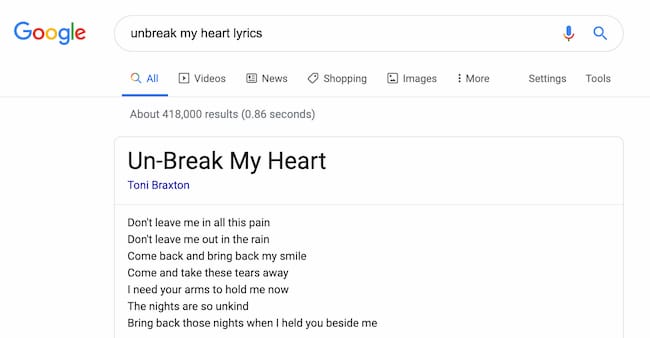How Much Content Should You Be Using on Your Niche Sites?

When you buy something through one of the links on our site, we may earn an affiliate commission.
Have you ever wondered how much content you should have on your website? Have you ever questioned whether you had too little or too much content on your niche site?
If you have, then this post is for you!
A “niche site” is a difficult thing to define. In my view, the word “niche” is less defined by the amount of content the site has, and more by the type of content it covers. If the site covers a very specific topic and has a narrow focus, it's a niche site. If it covers a broad category like “technology news” or lots of different topics like an article directory or a news type site, then it's not a niche site.
So, if all your site talks about is “worm farms,” it's definitely a niche site (and when in doubt, get your full niche definition here). Your worm farm site could have one page of content or 1000 pages of content, but it's still a niche site because of its narrow focus on one particular topic.
So, the important aspect of a niche site is finding that focus on a particular keyword or set of keywords. I always use Long Tail Pro to search for keywords, and I have shown how I do keyword research here and here, and many other places.
Check out Long Tail Pro here!Once you have decided on a keyword/theme for your site, the content you write should be focused around that theme.
Ultimately, it's hard for me to say exactly how much content YOUR site should have, because it always depends on each individual circumstance and your unique goals. However, there's a pretty big range, from just a single page of content, up to a site with maybe thirty posts, and then up to a site with HUNDREDS or even THOUSANDS of posts.
Let's look at the differences between them!
A One Page Site?
Wait, a SINGLE page? Isn't one page of content too little for a niche site?
Maybe, but maybe not!
The answer depends on the purpose of your site and the keywords that you are targeting. As I mentioned in a previous post, lots of the sites that I built in August of last year are essentially one page of content! I really did these more as an experiment than anything else.
You see, about a year ago I built a site that was supposed to have 5 original articles on it. However, I somehow got distracted and only ended up putting one page of content on the site targeting my primary keyword.
A couple of months later, I realized what I had done and went back to look at how the site was doing. To my surprise, it was ranking #1 in Google for its chosen keyword! It was consistently earning me $3 to $5 per day with just one article on the site!
So, of course I decided to test this out on a few other sites. Most of the sites I built in August started with only 1 page, and you can see that they have done very well as far as rankings and earnings are concerned.
However, this is a very risky move… I have since started adding content to some of the sites. It's risky because of Google's Quality Guidelines about “little or no original content.” Although, I still make the argument that a one-page site with an in-depth, well written article is more than enough to answer a searcher's query.
Just be very, very careful here. I'm not recommending that people should start doing this. All I'm suggesting is that it's very possible to rank a one-page site on the top of Google for your chosen keywords.
After all, lots of keyword queries can indeed be answered in one page or less. Here are some Google queries that could be answered in a page or less:
- What is a prime number?
- Today's date
- Un-break my heart lyrics
- Chicken cordon bleu recipe
- How to copy and paste
At the same time, a lot of these queries can be pulled out into the featured snippet, a box at the top of the page that looks like this:

That's why it's important to be thinking in terms of more in-depth, long tail queries that you can answer. You can find these search terms with Long Tail Pro.
Check out Long Tail Pro here!Google Ranks Pages, Not Sites
Here's the deal: most queries can probably be answered sufficiently in one page! This is why Google ranks PAGES and not SITES!
Especially after the Hummingbird and RankBrain updates, Google is perfectly capable of understanding what an article is all about – it would rather than see one quality post on the topic with a variety of related keywords, rather than a bunch of thin posts that each cover a different aspect of the topic.
In other words, Google primarily looks at the content of each individual page – rather than looking at the overall value of the site – when ranking pages. That's why it's called “PageRank,” not “SiteRank.”
Google assigns a PageRank to each individual article on a site, which means the homepage of a site might have a PR of 6, but the ranking article may only have a PR of 1. This is why you should always look at the PR and number of links to the individual page and not the entire site when analyzing the competitiveness of a keyword.
Now, when I say a site with one page of content, here is what I mean:
- One original article targeting the primary keyword
- A contact page
- A privacy policy page
- An About Us Page
And that's about it!
An Example of a 5 Page Site
You might be able to get started with just a single page of content, but to do a better job of staying within Google's quality guidelines, I would advise adding more articles sooner rather than later.
My standard niche site is usually started with around 5 pages of original content. These additional 4 articles on the site would cover related topics that the human reader would be interested in learning about.
So, if my chosen keyword was “Chicken Cordon Bleu Recipe,” I might write articles targeting the following keywords:
- Primary Keyword: Chicken Cordon Bleu Recipe (Possible Title: “The Easiest Chicken Cordon Bleu Recipe Ever!”)
- Secondary Keyword: Baked Chicken Cordon Bleu (Possible Title: “Why This Baked Chicken Cordon Bleu Meal is the Healthiest Choice”)
- Secondary Keyword: Best chicken recipes (Possible Title: “The Best Chicken Recipes for 2012”)
- Secondary Keyword: How to Cook Chicken Cordon Bleu (Possible Title: “How to Cook Chicken Cordon Bleu”)
- Secondary Keyword: Chicken Recipes for Dinner (Possible Title: “The Top 10 Chicken Recipes for Dinner”)
Of course, I haven't researched whether these keywords are good or not, but hopefully this gives you an idea of the types of additional articles that might be included on a niche site.
However, the question remains: how many articles is ideal?
A site dedicated to chicken cordon bleu may not be able to handle much more than 10 articles because it is such a narrow focus.
However, a site that is more broad – like “best chicken recipes” – could easily handle 100 articles or more as you review individual chicken recipes and how to cook them.
A Thousand Page Niche Site?
So, how many posts should your niche site actually have?
Well, that really depends on the topic you have chosen and your own personal goals for the site. If you have a site dedicated to “hosting reviews” or a more in-depth topic, you could easily fill a site with 1000 pages or more.

A site with a primary keyword of “hosting reviews” could easily dedicate an article to every hosting service out there and discuss each one's pros and cons. Since there are easily several hundred different hosting services out there, that's a lot of content right there!
Then, the site could also go into more depth about the benefits of VPS hosting, or discuss specifics about hosting WordPress sites, or best practices for organizing your server. The potential topics could go on and on.
The Amount of Content I Use for Niche Sites
As mentioned, I have built sites with as few as a single page, and yes, they can rank very well in Google (#1).
However, my standard niche site starts out with about 5 original articles. It may never grow to more than 5 articles, but if it's a site that's earning well, and I see room for expansion, then I will begin adding more secondary articles. I do have multiple sites with over 100 pages of content.
For the past month or two, I am trying to focus on niches that I can grow into something more significant, so I have been starting the sites out with 20 to 30 pages of content. Then, if I can get them to rank well, I will begin adding even more content.
What Are Your Niche Site Goals?
In the end, the decision is really yours.
Are you hoping to build 100 small sites, or are you set on building one or two larger sites? The strategy is still essentially the same in terms of picking a primary and then secondary keywords, but the amount of content can vary greatly depending on your overall goals and focus on the site.
In my opinion, due to the direction Google's algorithm has been going, you probably will get more traction with just a few sites where you can build up some authority and a strong brand. I'd put a decent amount of content on them – anywhere from 20 to 50 posts – targeting relevant long-tail keywords using Long Tail Pro.
Check out Long Tail Pro here!Conclusion
I hope this discussion has given you something to think about in relation to how much content you should have on your own niche site. I have simply shared what I have done and what's worked for me – it's hard to get too specific about what makes sense for you, because that takes into account your niche topic, keywords, competition, and monetization approach.
Ideally, you will be able to consider the options and develop a strategy that makes sense for yourself.
Anyway, I would be very interested in hearing your thoughts on the subject. Please leave a comment below!
Want to learn step-by-step how I built my Niche Site Empire up to a full-time income?
Yes! I Love to Learn
Learn How I Built My Niche Site Empire to a Full-time Income
- How to Pick the Right Keywords at the START, and avoid the losers
- How to Scale and Outsource 90% of the Work, Allowing Your Empire to GROW Without You
- How to Build a Site That Gets REAL TRAFFIC FROM GOOGLE (every. single. day.)
- Subscribe to the Niche Pursuits Newsletter delivered with value 3X per week
My top recommendations

















107 Comments
Conversation
I have to agree with you here Spencer. Some search queries don’t need 1,000’s of pages in order to properly answer their question. It all depends on your niche and the keywords you’re going after. The “broader” your topic, the more you can cover, where it’s the opposite the more you narrow in on a specific topic.
Thanks for mentioning that Google ranks pages and not websites. A lot of people seem to forget about that and end up wasting a lot of time trying to rank their root URL for a keyword, rather than deep-linking to their inner pages to take over other related keywords.
Great post!
Bryan
Yep, its very important to think about ranking “pages” rather than sites.
I’ve got a site that’s on a smaller niche that has 5 articles and is about 6 weeks old. It’s ranking #7 on google.
this is somewhat related but how often are you looking at rankings and analytics?
Maybe once or twice a month.
Good timing for me. In the interest of economizing some, I have started some of my sites with as little as 3 articles vs the 5-7 I was doing. For me this was still a bit of an experiment so it’s good to see that could still work quite well.
I think experimenting with different strategies is a very good thing; as it can help you determine what works best for you.
Thanks for the post on content size Spencer!
I have a niche site with only one post in it, 750+ words in length on a EMD.com, extremely low competition for a 2-word keyword that receives 2900 searches a month, published the site on day 1, on day 2 Google indexed it and on day 3 it hit the bottom of page 1 in SERPs, without any links in!.
I am now starting to understand the value of taking enough time to do proper keyword research and competition analysis.
Thanks a lot Spencer!
Sounds like your found a great keyword! Now with a little link building and some time, perhaps you get to the #1 spot…best of luck!
Thanks Spencer!
Question:
If Google reviews my one page site and demotes it due to not meeting its quality guidelines, is this permanent? Can I add more pages later and get back in the good books?
I often start with one article, then continue to add pages as I find time to work on it. This seems like a natural progression of a blog to me anyway, but I hope there’s no penalty for leaving a site with one article for too long.
Instead of just sitting on a domain name, I’d rather have it working for me, even with only one article.
I suppose Google could do anything it wants. However, if you are just slowly adding content to a new site, then I see no reason for google to “demote” your site. Here is a great guest post from a couple of days ago, about getting sites back after a penalty: https://www.nichepursuits.com/beating-google-how-i-fought-for-my-websites-and-won/
The human reviwers donot directly effect a sites serps ever. They merely provide information back to a team that does effect serps over time on types of things not specific sites.
Your just not going to get a penalty on small sites.
The only reasons you might not rank would be the quality of your on page SEO, backlinks and the competition. For a low comp term its clear thin sites work just fine as long as they are tightly targetted.
It wont work in car insurance but thats because of the comp not the algo.
regards
Thanks for the response. I’m mildly worried about a neglected one pager sitting low in the SERPs after being assessed by google’s algorithm. My feeling is that it’s ok to be sitting there, even beneficial to have some aging history. But when I start actively working on the site again, will it be harder or easier to rank, compared to starting fresh with 20 pages? Does google take into account the history of being a “thin” site? Or is just the fact that there is some kind of history helpful?
I highly beg to differ. Human reviewers CAN affect the SERPS by removing your site from the Google index if it doesn’t fit within the quality guidelines that they specify loosely. In my case, it was a situation where someone overlooked it and zapped nearly half of my sites that I own. I had to fight back to get my sites re-indexed, and it wasn’t exactly fun (especially when you’re sites follow the guidelines).
Also, you definitely CAN get penalties, no matter how big or small your site may be. It’s all in the algorithm. Small sites, big sites, it doesn’t matter. I can’t tell you how many people I know that have been hit with penalties in the past – all micro niche sites, too.
Trust me – when you think you will be fine, something happens. Having the mindset of “these sites are too small to be hit” will treat you to a major wake-up call one day.
Bryan
Hey Spencer,
I have a question that hopefully you can give me you opinion on:
Say for example I am going to be creating a site about the keyword “blue dots locations”. However, there are also great keywords “blue dots review,” “blue dots coupons,” and “blue dots promo code.” There are about 5-6 other similar keywords revolving around the same topic but with some minor differences. I was first considering just writing a bunch of 500 word blog posts on my “blue dots locations” site to try and rank for these keywords but now I’m also considering making separate niche sites on all the different keywords because they look so good and I’m figuring it would be easier to rank with separate sites. Is there anything wrong with having maybe 5 sites around the same niche (blue dots) but different keywords or will Google see they are all connected to my AdSense/Analytics account and not like that? What do you think? Thanks!
Its possible that Google might not like lots of sites on the same topic. I can’t find the exact page, but I know the Google quality guidelines frown on creating multiple sites all targeting the same topic: http://support.google.com/webmasters/bin/answer.py?hl=en&answer=35769#3. So, perhaps it would be best to add the articles to the blue dots review site.
Thanks Spencer!
Hi
the one site is better as you get more authority in the subject, more domain links and will definetly link better. Plus it saves the cost of buying all the domains and building out the sites.
Matt cutts says its fine to build multiple sites and interlink them but only if theres a reason why you would do that. I take him to suggest that this kinda scenario is not a good reason i.e. to rank using EMD.
It stand to reason if they are seperate subject that seperate sites interlink is fine.
I’m currently focusing on making lots of small one-page sites. If the sites end up ranking and making money then I will expand on them. I have had sites that have gone to # 1 and got a ton of traffic, but the ctr and cpc were horrible, so I didn’t bother to add more content.
Thanks for the post. Now, I’ll unblock the search engines for one of my sites where only one article was added few months back. 🙁
Thanks for the post Spencer! I’m newbie to niche site building. Now, I have a clear thought about how much content do I add to my niche sites. However, I still have one more question. Some of my niche sites use a static page as the home page. The content of this static page is the primary keyword. The secondary keywords are using post. What do you think about it?
I think that is just fine! I have done the same in the past with many of my sites. I essentially still do the same thing, but the home page is a “sticky” post that always remains on the homepage.
I never really thought of a 1 page site earniing any money but when all it takes to answer the query IS 1 page it makes sense. I’ve been going with 5 posts but maybe in the future I’ll try a 1 page site. Thanks, Spencer
I’m not trying to recommend this to anyone; proceed with caution.
I’m with you on the fact that there is no hard fast rule, my standard out of the box starting point is 5 pages and then add as needed depending on results.
I have long suspected 1 page sites could work if they fulfill the need of the user. thanks for posting this info.. I may have a go with a few “how to ***” sites
I have noticed over the years 5 pages sites are getting harder to rank, maybe it is more about the depth of the niche and this is why I’m finding it harder.
I’m presently trying a new approach with one site and that is adding one page daily on the fly for 31 days. By doing it this way I’m able to see the evolution of my main term “fairly competitive” in search results, to-date it has been interesting first ten days zilch day 13 popped in at 170 day 18 jumped to 35
I dont do any type of link building other than facebook and adding it to comments and other really simple stuff, I do add site to webmaster tools in google and resubmit sitemap every few days.
What I’m looking for is does [adding more content] without any other factors “link building” allow you to rank for a decent term if the content is way deeper than what would be considered normal for that size niche.
The site covers Living in Thailand decently on $400 a month, 31 daily snapshots of expenses, along with all I have learned in 18 months broken down in to 31 short articles.
Hi
a great country to live in. Although the heats a killer 🙁
I see you up north quite a group of IMers up in chang Mai i believe.
lots of intresting tit bits on your site. thanks
Sounds like an interesting site and experiment! I hope it works out well for you…
Hi what about a blog format that has an home page, about me, privacy but has 5-10 articles on home page?
That’s just fine as well.
2 Things:
1) I would guess that more content will be easier to rank for in the future as google has started to put more emphasis on “fresh” information.
2) As strange as it sounds, “pagerank” is called “pagerank” because Larry Page invented it. Just a coincidence that it affects single pages. (Which is true, like u said)
Dustin:
You are absolutely right that PageRank is named after Larry Page! My bad. I actually knew that, but mistated things in the post above as to the reason why PageRank is called PageRank. Thanks for the clarification!
Hi Spencer –
How is your content creation approach different for niche site vs Amazon sites? (product review, informational, or?)
I’m just getting started with my 4th Amazon site and finally made my first sale last week! My take is that if you are doing the same link building and article spinning for X number of websites, it seems to payoff better in the long-run (1 yr+) if you chose Amazon over Adsense – simply based on higher conversion vs Adsense CTR, commission on physical products, trusted brand, etc..)
I’ve only started learning this two months ago, so if my assumptions are wrong please do correct me!
Terry – the content for amazon will typically be more product review based.
Also, I tend to disagree with Amazon being better. With Adsense, I get paid every time someone clicks my add. With Amazon, I only get paid when someone buys something. In addition, I target lots of keywords with Adsense (and make good money with) that no product exists for on Amazon. In other words, Adsense opens up a world of opportunities that I could never make any money with Amazon.
However, there may be some niches that Amazon is actually better for…I have just yet to find any that work for me.
With regards to privacy policy, do you use the wordpress plugin privacy policy generator? Do you use the same privacy policy for all your site differing only by domain/site name? Is there a guideline/tip on how the privacy policy should be presented? Thank you very much.
Yes, I use a privacy policy plugin and its the same for all (with just the domain/contact info changed on each).
I totally agree with all the things you said in your posts but I think you left out something important – the amount of content your competitors have. And here I focus more on the number of words in a specific page, rather than the total number of pages.
I try to have more content than my competitors for each article I write. If my competitor has a 500 words article on “growing weed at home without getting caught” I will write a 1000 words article on “growing weed at home without getting caught”.
Hi
thats a cool idea. My only negative take is I would not do that if the keywords they are targetting are super low. Theres a balance in that area.
Also you could come up with a better eye catching title so if you draw along side them in serps you stand out.
regards
That’s probably a good strategy…thanks for sharing.
What jumps out at me from your post and the comments is that the key question is “How do you efficiently test keywords or niches for ranking ability and profitability?” In particular AdSense profitability. (Though I think it’s crazy to put on Adsense blinders when thinking about how to monetize a niche site.) That’s the real appeal of a one page website because it addresses both factors cheaply. You can theoretically test 5 niches for the price of one 5 page niche website. Thats how I think about them anyway. Unfortunately this still seems like to inefficient a process. You still have to wait 2-3 months usually. There is the not insignificant the cost of the site and backlinking. And they are the riskiest sites from the perspective of being susceptible to probable Google algorithm or AdSense policy changes. Build My Rank just informed me yesterday that they are going to be changing their policy to only allow links to Adsense monetized sites with at least 5-6 article pages. I suspect we are fighting where the world is going quickly with these single page sites. So what’s a better way to test niches/keywords quickly and cheaply?
RHC – You bring up some good questions. These 1 page sites are indeed good ways to test out lots of niches. However, I’m not as convinced that they are going away right away. Perhaps they are, but I’ll wait until it actually happens before I get too concerned.
Its difficult to test out lots of keywords/niches; which is why keyword research is so vitally important. By understanding why the top 10 sites are ranking in Google, you can make a good judgement call on whether or not you can rank for it. You can also look at the CPC, number of advertisers, and search volume to help determing if a keyword is a good one before you ever build a site on it.
One way to test that occurred to me today, that at least might test the CTR and CPC of page/keyword is to run a short PPC campaign for it. Maybe on Bing since its cheaper. I havent played with numbers yet so it might be a complete non-starter. Note im not saying use PPC to make money with an AdSense site, but to weigh the cost of finding out in week if a keyword is profitable enough against the cost of waiting 2 or 3 months on average to find out if and when you rank. Anyone have any experience trying this?
BMR told me this week that they are requiring 3 unique articles. Did the 5 that they told you include contact, about, privacy pages?
No admin pages dont count. I guess this is all very new, it in an email i received yesterday. My timing for signing up was terrible. And I know its not just here-say because i had a 3 content page site reviewed and was told that the content quality and site quality are fine but for AdSense moneitized sites from now on 5-6 pages minimum. The email states that they are implementing this policy because and I quote “we are just noticing some negative impact lately from linking out to thin adsense sites” I dont know if thats going to be true of Affiliate sites or not. I wasnt asked to keep this information private so rather than see other AdSense people be effected by it im passing it on. Everyone should note that with BMR, 1) There are no refunds period. 2) They reserve the right to deny linking to any site for any reason. 3) The site page minimum above. I dont begrudge them any of these rules and hope to use them in the future.
If you learn to do the sites yourself, you can have a niche site set up in less than an hour and it’s cost you nothing except time and the domain registration.
It’s easy to install WordPress, stick a theme on it and buy some content. Link building can also be done for free, especially in the early days of a site where less is more (a handful of new backlinks per day at most).
Hi Spencer, thanks so much for this enlightening post. I’ve been following you blog for a while and this is my first time posting. I’m in the process of setting up 10 new niche sites right now, based on my goal to ramp up my online income this year. I think I have a good system down by now, but content was one issue I heard a lot of conflicting advice about. What I heard most often from people was to have at least 15-25 article pages on each site and then keep adding content monthly. This seemed to be way to much for a small niche site and I had a hard time finding enough keywords for the articles, so I’m happy you clarify this and showed that you can rank with a 5 page site.
I will now switch my strategy and build up to 5 pages first and wait a couple of months to see how the sites are doing over time and with a couple of strong backlinks and then maybe add more.
Btw what would you say is the average amount of pages you have on your top earning sites? I’m just curious to see if there is any correlation there.
Most of my top earnings sites started earning good money with only 5 pages or so. The income has gone up very little as I have added pages. But most of my top earning sites now have 20 – 30 pages of content. In other words, the additional content really hasn’t added much to my income; but it may help keep the site ranked well.
Hi,
Can you discuss the relationship between no-index/ follow, no index/no follow etc. pages and Google rankings? If you have a member site and want to block some pages from the public, but you still want them to help your rankings, is no index/follow a good way to do that? Thanks.
Hi Spencer
Another great post. Based on some of the work youd done alrady and posted on Ive been trying 1000 word single page sites. plus ofcourse the about us etc.
In the first 90 days I see them ranking just as well as 5 x 500 word sites sometimes better.
So as a way to test a keyword niche its a great idea.
I also have some authority sites im developing. So for these each one has x number of main areas. They get a 1000 word article supported by 500 word articles and launched with 30 apages each.
How quickly would you add more pages to authorty sites? And how do you deal with all the backlinking on a large site? target just some pages?
thanks
Steve:
Glad to hear the testing strategy is working for you!
I started adding additional content almost right away to my authority site; scheduled 1 new article per day. As far as backlinking, I still direct a good portion to the homepage to rank for my primary keyword. But then I do try to build links to inner pages; and its best to pick those articles that are either doing well already or those that you think have the most potential. Ideally you could build links to every single inner page, but its just usually not feasible.
As the topic is content, I just thought I’d mention that textbroker have a UK website – textbroker.co.uk … I’m doing a bit of writing on it in my spare time … there is a serious lack of level 3 work so feel free to post some there if you are UK based 🙂
Spencer, thanks for diving into this topic! I learned about content being king the hard way 🙂 I’ve dedicated my new sites to quality content now.
In the past, however, I tried duplicate content (mainly Yahoo Answers). I watched my traffic stats closely for a year or so and noticed that traffic slowly dropped over time – almost like Google caught on and saw that the site had no value since they were dupes. I eventually shut down those sites and started again from scratch, this time using QUALITY content. Not only does using good content give a sense of accomplishment, but it really does help people like you and me find meaningful stuff online.
As for the amount of content – I definitely agree with the idea about testing/experimenting to see what works. As long as the visitor is kept in mind, the amount shouldn’t really matter much.
I agree 100%
HI Spencer,
How long do you typically wait (or not wait) until you decide to add more content to a site if you created a 1-page site just o get the ball rolling? I have a few of these, and my rankings are all over the place as my backlinking campaigns only started about two weeks ago. So right now my analytics stats are kind of whacky. Should I be waiting a full 30 days to see where the sites are at before I add content? For example, my plan was to see if I’m within the top 100 by day 30, then to add more and start a new campaign to the inner pages as well as the homepage for further SERP boost.
Andre
I usually would wait at least a couple of months. After a couple of months you can start to tell which sites are going to perform better than others. If the site looks like it has big earnings potential, then I would add more articles to it.
Thanks, Spencer.
It’s funny though, I just took a look at my portfolio of sites yesterday and randomly picked out a few that I wouldn’t mind adding more content to. No rhyme nor reason, just for fun. I’m going to see if I can get those ranked better by targeting the additional long-tails and see what happens.
Hie Spencer,
Seeing that Google ranks pages and not the site,does it mean I can as well choose a non-keyworded domain but with highly targeted articles/pages? Lets say I choose a domain “zimooba.com” with 10 highly targeted niche articles on “easy chocolate dessert recipes for kids”,is there any chance of my articles ranking higher than an article from a keyworded domain e.g. easychocolatedessertrecipes.com ?
Of course! It might be a little bit harder, but you can DEFINITELY rank in your example. Ezinearticles.com ranks for all kinds of stuff. So does Amazon.com, so does ebay.com – and their domains don’t mean anything (not keywords). Most of the internet is non-keyword domains.
Hey Andre – I’m in pretty much the same boat as you right now. I have launched 55 sites since Dec 20th and most are single page.
They are doing the google dance in a major way and I know that takes some time to settle down, so I’m eagerly waiting for them to at least stabilise a little bit so I can get a rough idea of which ones might be worth adding content to.
Spencer, I’d love to get your feedback on this too… How long into the process do the first indications emerge that new content would be worthwhile?
Cheers
I only add new content if the site is earning money. If its only earning $1/day, I probably still wouldn’t bother adding content. But if its a $10/day site then its getting more content.
Awesome, thanks for your reply Spencer
Just for argument’s sake, even $1/day is enough to earn one article a month from places like TextBroker AND pay for the domain. So, even if you started now with a 1-article site and in 3 months started earning $1/day consistently, you could have a nice 8-9 article site by year’s end that you could sell on Flippa or elsewhere. Then, reinvest the profits into more niche sites.
You are totally correct. It would still be profitable to add additional articles. I guess I was just stating that I put more effort into the sites that earn more. So, if a site is earning $10/day it makes it much more worthwhile to focus my time on that site as opposed to the smaller ones. However, ideally you would be adding content to all profitable sites to make them bigger than 1 page.
Great post Spencer 🙂
I do agree that it depend on so many factors.. I do always start with one big and informative article.. Wait 2-4 weeks and look for the ranking and the income.. And then i decide if i am going all in or not..
Have a nice day Spencer 🙂
Hey guys – check out this post about ads above the good.
Good read:
http://searchengineland.com/too-many-ads-above-the-fold-now-penalized-by-googles-page-layout-algo-108613
Thanks for the share Matt.
interesting read, so should we put content above our ads now, is the title above it enough, or should we wrap the content around any ad above the fold now!? 🙂
I typically use layouts 1 and 2 from this article: https://www.nichepursuits.com/5-simple-adsense-layout-examples-for-increasing-click-through-rates/ – And from what I can tell none of my sites have been affected. However, you can also consider layout 5 if you want to be more cautious.
many thanks spencer
Spencer,
Did you feel the affect of the new google update involving ads above the fold?
My only real ranking site was hit by something two days ago. My top 5 keywords went from:
4 -> 10
4 -> 18
5 -> 28
16 -> 50
13 -> below 50
Nothing aggressive with backlinking.
Do you have a lot of adsense ads above the fold?
No. My earnings and rankings are just as good as they have always been. But I mostly have my text wrapping around ads (so articles always start near top above fold). This may need to be an entire blog post.
Are you using a plugin to wrap the ads?
Yes, quick adsense plugin.
Hey Spencer,
I see you stating that you create more “pages” to your wordpress blog… So you don’t create “posts”. Not sure if you mean posts.
Can you please explain this a bit more?
Thanks,
Toki
I mean posts. All the articles I add to my sites are done as posts.
Hope you don’t mind if I chime in since this drove me crazy. Forgive me if you already know this. Just trying to help out.
You can create Pages or Category Pages (which are Posts that have a Category assigned to them)…it’s kind of confusing at first. It still sometimes even perplexes me when I’m working on multiple things.
For example…if you go into WordPress and create a new Post, you will notice in the left sidebar of the edit screen, a Category menu. You can create a new Category for your Post.
You can then choose to organize your WordPress site by Pages or Category Pages.You can even make your navbar display one, the other or both.
Most importantly is that you want your static content (content that often remains the same ‘About, Privacy Policy, Contact’) to be Pages. For SEO it’s best that your content are Posts assigned by Categories. They still look like pages in the SERPS.
Hope that helps!
Spencer,
This is great! I have been searching high and low for a write up like this. This is perfect.
Thanks!
I have a question for you Spencer…I tend to buy a domain, install WordPress, theme, plugins, etc, and then get lazy. Can having a site up with no content hurt it’s value in the long run? I go through phases of writer’s block where I can’t seem to get anything to come out. I just wouldn’t want a site to get sandboxed.
Ian:
I’m not sure on this one. I would think not. However, its obviously best practice to have some content up on your site, etc. But, I think you of course won’t rank anywhere without content, but once you add content and promote your site, I think it should be able to rank as usual.
Thanks Spencer. I am thinking the same thing. It’s more about focusing on one thing at a time which can be a challenge in our ADHD society. Figured I’d see what your thoughts were.
Hey Spencer –
Thanks for this post. Gives me some more information and ideas of the types of niche sites I want to build.
I’ve actually tried doing both 1 pagers and 5 to 10 pagers. Currently I haven’t seen a huge difference in the two but I am sure I will the more I link build.
I plan on getting a decent amount of traffic to all my niche sites and then once they are driving traffic I’ll add more content if they aren’t duds. Think that will be a good starting point. Get ranked and then add content if they are good. If they suck I’ll just remove the ads and let them die if my keyword research was that horrible.
Hopefully it works out in the long run.
Hi Spencer,
Do you use real email addresses in your contact page or in privacy policy? If yes, do you use them for several of your sites or unique email each site? Thanks.
Yes, I use real email addresses. I tend to mix it up – not all are unique, but I do use several different ones.
Spencer, just getting around to reading this post. I’m SO glad you used the Chicken Cordon Bleu Recipe keyword as an example! Since cooking is my expertise, I got a kick out of that and it really helped me to understand the example of the 5 page site. Thanks!
Spencer, got a question about where you put your content on your site.
The way I build my sites is I usually have one main article that is 1400-2000 words long that contain my keyword. Drawing from your example of ‘best chicken cordon bleu recipe’, that would be my keyword for this article and I would also have an EMD or and EMD plus ‘top’, ‘best’, or ‘the’.
I usually call this my ‘money’ article because this is where I will hope a majority of my visitors will go to, where the rest of my articles are just there to beef up the content and possibly bring in some long tails I didn’t expect.
I have usually made this article a post, so it isn’t on my homepage or my root domain. So the URL to this post may look like:
http://www.bestchickencordonbleurecipe.com/top-recipes/best-chicken-cordon-bleu-recipe.com/
My question is, would it be better to make my home page my money article, so visitors go to my root domain? Is this better from an SEO standpoint?
Thanks again for all the awesome advice you’ve given.
Spencer!
I started out with the idea of creating several small niche sites, as you have, to eventually get to $100k/yr. However, I quickly changed to the BIG SITE model because I finally found something I’m SUPER passionate about and can really help people with. Crazy enough, it’s in the diet/fitness niche. I’ve been slowly writing my own content, and plan to monetize soon. There is no questioning of my eventual success. It’s not a question of if, it’s just a question of when.
I’m excited for the journey ahead!
Hi Spencer,
Great post! I just put up my first niche site with a static homepage which is basically an article with some pictures, privacy policy, disclaimer, contact, and one blog post. Once it got indexed it ranked #10 for my keyword without doing anything else. For now I am writing my own articles and have not gotten comfortable with article spinning. What would you say would help to raise the ranking more–adding the articles to the site or submitting them to article directories for back links?
I am excited to have found your site–it is extrememly helpful!!
Thank you!
Gwen
Getting more links to the site will help most. I would NOT submit the exact same articles you used on your site to article directories. You need to get new articles – these could be PLR articles or something else, but I would not recommend using the articles from your own site.
Thanks for getting back to me! Since I am right now just writing the unique articles myself I wanted to see where I would get more bang for the buck–I will be sure not to duplicate. Thanks for your help!
“I would NOT submit the exact same articles you used on your site to article directories. You need to get new articles”
Why is that Spencer? It’s article syndication and no duplicate content, isn’t it?
Many news sites and top blogs get high rankings with articles from other sites. Am I missing something?
You want your sites to be original content – because you can rank it better. If you are duplicating your content everywhere, you run the risk of these article or secondary sites outranking your primary site. Not a good idea. I have nothing wrong with duplicate content, just don’t use it on your money site.
Hiii …
Its Awesome ..Spencer..
Thank You Very Much For Your Valuable Article..
Here i have to ask you one matter, that i have to make 5 niche sites which included only two pages(means-two article) for the good keywords. Then, for this, is there any need to make .com or .net etc domains ?? In other ways can i make these niche sites using wordpress or blogspot?
then,is there any need to make a domain name for my niche sites which depend upon the keyword which i selected? Pls reply..
Thank You….
Hi Spencer. Thank you so much for all the valuable content.
I have a few questions for you. I am setting up some niche sites on WordPress.
1. Let’s say I have 5 article directories I want to submit to.
Should all 5 articles need to be unique?
Is it a bad idea to post the same article that I have on my website to these article directories, or should I be spinning the article each time to make it unique?
2. As I am just getting started and don’t have a big budget for these sites, is a low cost or even free way to submit articles in mass to article dirs?
Thanks a bunch!
Clint
Hey Clint,
For what it’s worth, I will give you my input because I have some experience with article marketing.
You do not need to spin the article on your website before submitting it to article directories, however you NEED to make sure that the article on your website is indexed by search engines before you submit it to the directories. Otherwise, the version in the directories will most likely get indexed before the one on your website and so all of the “credit” will go to the directory instead of your website.
However, the above is only relevant when article syndication is concerned. If your sole purpose in getting posting to these article directories is to get a little backlink juice (as oppossed to getting some direct traffic from the directories themselves and/or from the syndicating channels), then yeah – you should spin the articles (though do it well, never use any of the “auto spinning” options).
Regarding point 2, I will leave that one to Spencer 🙂
P.S. regarding spinning:
If you’re only planning on posting to a few (4-5) article directories and want to spin the article, then I really think you’ll be better off simply re-writing the article by hand 4 or 5 times. Properly spinning an article so that the output isn’t crap takes some time, enough so that it’s not really worth it if you aren’t considering spinning the article at least 10 times.
Hi, great read.
I just wanted to get your opinion regarding the home page of blogs that don’t use the “read more” option for posts.
Since you mentioned that focus should be given to pages rather than the site itself, if I removed the “read more” option and displayed the full text of all my articles (since it’s a niche site it’ll probably only be 4 or 5 posts) on the home page, would that then be more advantageous from an onpage SEO perspective?
My dilemma is whether I should be building links to my posts or to my homepage. If this method will make my homepage more content rich for google, I’d then be able to build links back to my homepage only and not need to worry about building links to each post.
I’m basically just targeting one keyword for all posts anyway, although the content of each post is informative and related to the main issue that I wish to address with the site.
I’d love to hear anyone’s thoughts on this. I’m a newbie IM person so I haven’t come across any articles, podcasts or videos that address this issue yet.
If you picked a niche that the content is on a medical problem
You have a greater responsibility to make sure it’s researched properly and written right.
A person doing a search at 3 in the morning thinking his having a heart attack and wanting some real info , and some moron got lucky on some long tail keywords and ranked some spun gibberish content , then the end user called 611 instead of 911 and got a recorded message on cat under wear, thats a big problem. Go to answers. com put in heart attack ,they try to sell you a $1200.00 defibrillator then some aspirin on the first ads. If you scroll down in small print that you have to be bald eagle to read ,especially at 3 in the morning, they give you a description on a heart attack. Don’t you think they would write calm down breathe and call 911?, nope.
Hay Spencer,
Just came across your site tonight for the first time, and have to say that I’m really impressed. You seem to have a vast knowledge on a varity of very interesting topics.
I found this article enjoyable and informative, as I’ve also seen many 1 – 5 page niche site out rank what seem to be more authoritive sites.
I guess it kinda gose back to another article of yours about content and how they are optimized.
Anyway, great article and thanks again.
P.s. +1’d
As i have been providing SEO services to my cleint for a couple of years. I have seen that many websites are ranked well however they have just one article posted. I think content matter if it is unique and offers value to readers then it is google loving. Also i have seen many website who have a lot of articles but they do not rank in top 30. Hence quality of content matter not quantity.
Thank you for this very helpful post, I have a question that What happen with your 1 article sites after Penguin 2.0 update? Is it still rank well at this time?
I purpose to create several sites with only 1 post.
Thank you!
I am looking to start a Treatment based niche site. shall i cover all disease & treatment details or only few particular disease & treatment. I want to include ad sense and affiliate products. will it work. Please give me some idea.
Hi Spencer!
What if you are not depending Google traffic on your one page site? Rather, this one page site is getting it’s traffic through forum marketing or guest posting (or other sources) and the sole purpose is to get people on the e-mail list?
I guess in that situation 1 page could work well, since it’s not dependent of SEO? What do you think?
Cheers,
Timo
Sure – if you are not relying on SEO traffic; a one page site might be fine for your purposes.
I know this discussion is kinda old but I’m still new to learning page ranks, analytics, backlinks, seo. But I have a question. I checked my page rank of one page and it says 0. But when I Google it it’s on 8. I used the terms Portland classifieds Rose city. Shouldn’t it say pgr 8?
No. PageRank has nothing to do with where your site ranks on Google. Read this: http://en.wikipedia.org/wiki/PageRank
Great content. Very engaging, now I’m motivated to write good content and make a living online. Kuddos to you